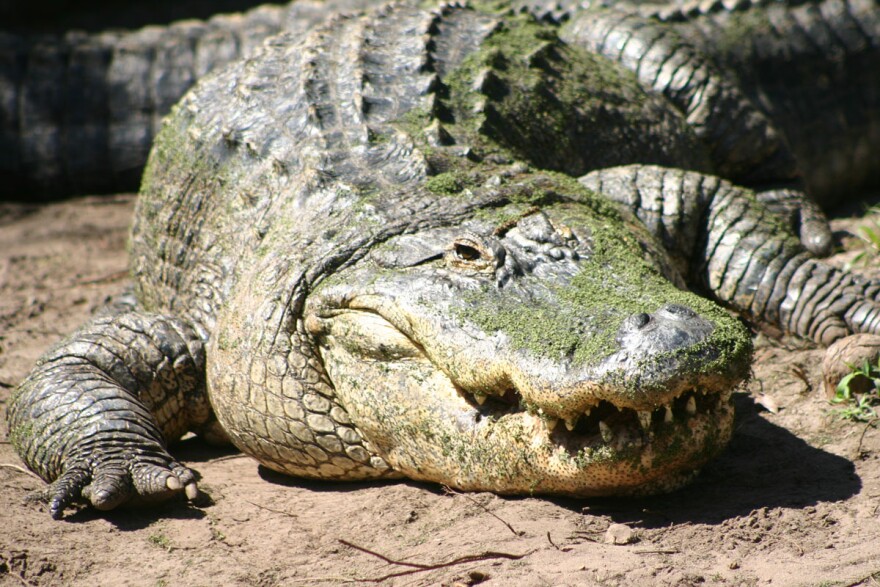Some alligators can run much faster than you might think. Even more surprising is how alligators atain physical fitness. Unlike humans, alligators that get less oxygen when they are still in an egg end up with stronger hearts.
Alligators start their lives as eggs inside a big pile of decaying vegetation and dirt. The eggs buried deepest in the nest end up getting the least oxygen. What scientists noticed, though, was that the alligators who developed under conditions of low oxygen were the very ones who ended up having the strongest hearts.
A research team wanted to find out what was going on at a molecular level, so they brought alligator eggs into their lab and put half in an incubator with low oxygen, and half in an incubator with normal oxygen levels. When the alligators hatched and grew, they looked at the proteins in their hearts.
The alligators that got less oxygen had more molecules for making heart proteins. Essentially, they had better machinery for keeping their hearts strong and healthy.
Scientists hope that studying the inner workings of strong alligator hearts will translate into future research on keeping human hearts healthy.
Source
D: Yaël, Did you see that alligator go? I had no idea they could run that fast. Good thing it was headed towards the water, and not towards us.
Y: Maybe it was one of those alligators that got less oxygen when it was in its egg and ended up with a stronger heart.
D: Less oxygen? Don’t you mean more? I thought less oxygen led to problems, not better fitness.
Y: That’s usually true, Don. It’s definitely the case for humans and other mammals. But alligators are a different story. Alligators start their lives as eggs inside a big pile of decaying vegetation and dirt. The eggs buried deepest in the nest end up getting the least oxygen. What scientists noticed, though, was that the alligators who developed under conditions of low oxygen were the very ones who ended up having the strongest hearts. A research team wanted to find out what was going on a molecular level, so they brought alligator eggs into their lab and put half in an incubator with low oxygen, and half in an incubator with normal oxygen levels. When the alligators hatched and grew, they looked at the proteins in their hearts. The alligators that got less oxygen had more molecules for making heart proteins, integrating the proteins into cells, and removing and reusing any damaged heart proteins. Essentially, they had better machinery for keeping their hearts strong and healthy. Scientists hope that studying the inner workings of strong alligator hearts will translate into future research on keeping human hearts healthy.
D: Who knew there could be so much to learn from a cold-blooded alligator’s heart?


